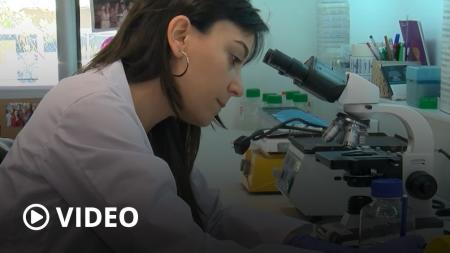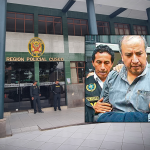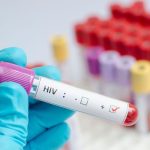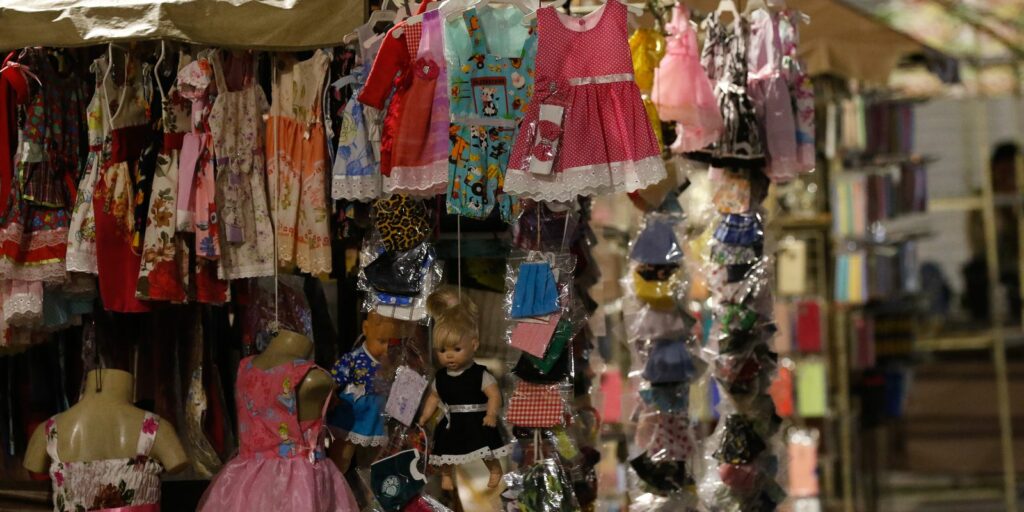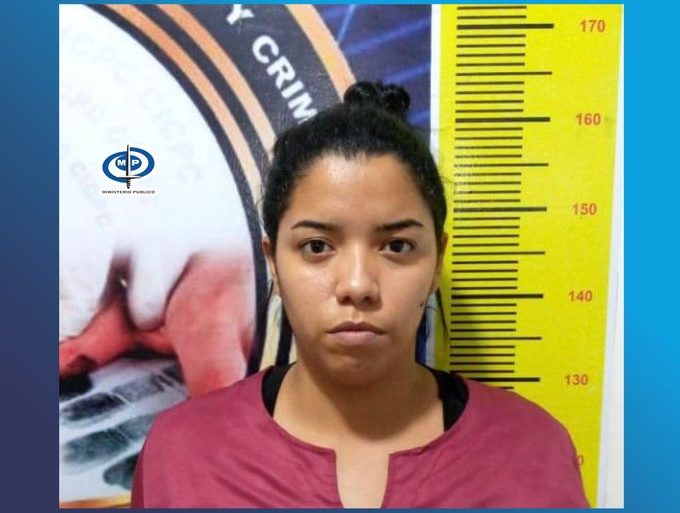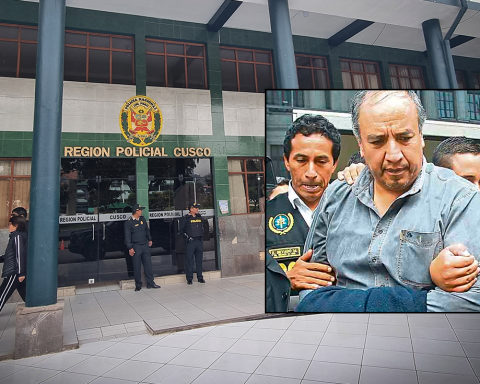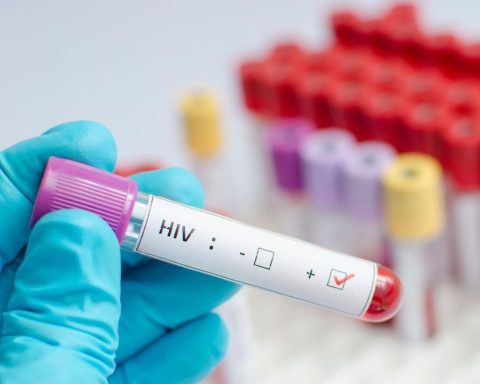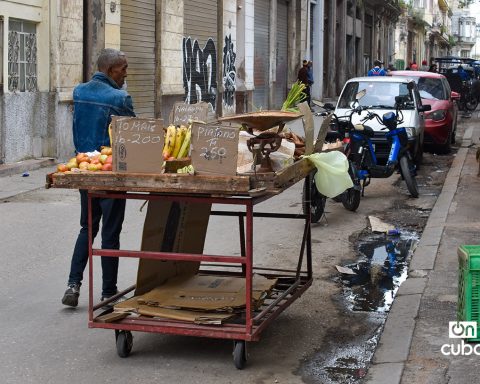For Fernanda Parborell (52), the laboratory of the Institute of Biology and Experimental Medicine (IBYME-CONICET), in the Buenos Aires neighborhood of Belgrano, is his second home. He has been working at this benchmark institute for more than 25 years, founded in 1944 by Nobel laureate Bernardo Houssay. And lately he got used to riding a bicycle, especially since the restrictions on public transport due to the Covid-19 pandemic.
A native of Ramos Mejía, west of the suburbs, Fernanda studied Biological Sciences at the University of Buenos Aires and when she studied Molecular Biology with Alberto Kornblihtt, she decided to focus on that specialty.
The choice of female fertility as an object of study is linked to her own personal experience. She is the mother of three boys aged 23, 18 and 13 and she had to resort to assisted fertilization treatments.
Today directs the Laboratory of Studies of the Physiopathology of the Ovary at IBYME. There she receives Télam-Confiar, along with two young fellows: the biologist Candela Velázquez and the geneticist Yamila Herrero, part of the team of six people who accompany her in her research.
At the beginning of 2020, Fernanda and her group were studying chemotherapy- and radiotherapy-induced premature ovarian failure (POF) in cancer patients. The outbreak of the pandemic forced them to suspend that line of investigation. But they quickly refocused their efforts on a question that few were asking at the time: what consequences could infection with the new virus have on fertility?
About this work, and about the importance of incorporating a gender perspective into science, the biologist and researcher spoke with Télam-Confiar.
What facts defined your vocation for Biology?
I do not come from a family with a scientific tradition. My mom was a teacher and my old Naval engineer. But they gave me my first microscope with which I discovered for the first time that there was a world invisible to my eyes. Then I became fascinated with (the oceanographer and documentalist) Jacques Cousteau and wanted to be a marine biologist. And luckily I had good science and biology teachers in high school. Already in the faculty (of Exact Sciences, at the UBA), I had the honor of studying Molecular Biology with Alberto Kornblihtt. He transmitted to me and to many, the passion for science
At the beginning of this year, together with your team, you published a paper on the effects of Covid on female fertility. How was it carried out and what were the main findings?
We started that study in May 2020. We wanted to assess the consequences of Covid on female fertility. We did not access public funds at that time because they were intended for issues considered more urgent. So we look for international funds. The pharmaceutical company Ferring was making a call and we presented a project, after agreeing with the team if they wanted to come to work in the midst of a pandemic.
Thirteen people worked, including doctors, biologists and researchers, and we made an agreement with four reproductive medicine clinics that provided us with the follicular fluid that accompanies the oocyte. They discard it but it is a great source of information. We took samples of follicular fluids from recovered and healthy patients to measure the presence of IgG antibodies against the new virus. Thus, we observed that those with higher levels of antibodies had a lower number of mature oocytes. We also detected lower levels of a factor that is essential for the growth of blood vessels in the ovary. This tells us that SARS-CoV-2 infection negatively affects ovarian function.

Can Covid infection then lead to infertility?
It’s not that it causes sterility. What we are seeing is a decrease in ovarian function and we believe that it is transitory. This is relevant for those who are looking for a pregnancy. They may have to wait a few months. We are continuing the studies, with patients who have recovered between 9 and 18 months and we do not see any changes. But we did observe a recovery of the ovary a year and a half after the infection.
Did they also investigate the effects of vaccines on female fertility? What did they find in these cases?
We studied patients with two doses of the vaccines available to date: Sputnik and Astrazeneca, based on adenovirus platforms, and compared them with patients who had received Sinopharm, which is the inactivated whole virus; and with patients -better said with the follicular fluids- of unvaccinated patients. What we saw is that there was no difference in their ovarian function. In other words, vaccination does not interfere with the functions of the ovary or fertility.
And what about the most modern vaccines, the messenger RNA ones?
With those we could not investigate because they arrived later in the country. But there is a very large study in Israel, which vaccinated its entire population with Pfizer, and found no sequelae in ovarian function. Our message is that you have to get vaccinated. All vaccines are safe.

passion and vocation
One of the things that Fernanda most appreciates about her profession is that it allowed her to combine her scientific vocation with motherhood. “I always wanted to be a mom and I never thought of it as an obstacle to dedicating myself to science. What’s more, I put this in my letter to enter Conicet as a researcher, along with my academic background,” she says.
Throughout her career, Fernanda had glorious moments, like every time her work was published and gained international recognition, or when she was chosen as one of the 25 most relevant women in Latin American Science, by the innovation company 3M. She also had moments of laughter, like when they called her from school to ask for an estimate for pest control, because her son had said that “mom is dedicated to injecting mice.” And painful moments like when, as soon as the pandemic was declared, she had to sacrifice her laboratory animals because she was not allowed to go feed them. “This is something that is rarely talked about, and that cannot happen again. The pandemic caught us unprepared, not only here but around the world, and many mistakes were made. Although the capacity and speed with which the scientific system devoted itself to working and researching the new virus was also remarkable, ”she highlights.
Did you ever feel discriminated against for being a woman in your scientific career?
It is not something that I have experienced personally. At least at IBYME, there is an atmosphere of inclusion and fellowship, and not only among scientists, but with all the staff. The maintenance people, the cleaning people… without them we couldn’t investigate. The good thing is to respect the diversity of gender, religion, ideas, abilities. Just as men are more practical, women are multitasking… and this multitasking of being a mother, researcher, team leader, is sometimes overwhelming but allows you a broader vision when facing challenges and problems.
What would you say to someone who is undecided about pursuing a scientific career?
In life you have to do what you like, and do it with passion. It’s what I tell my kids too. Otherwise, you will be a frustrated person no matter how much you earn money.
